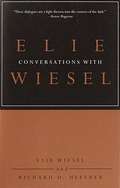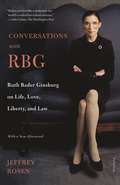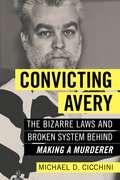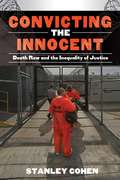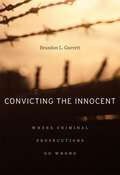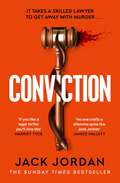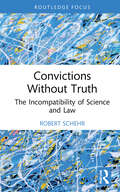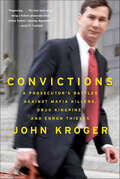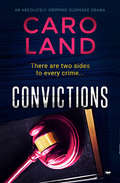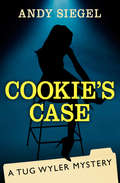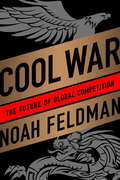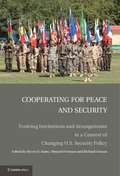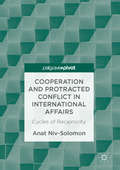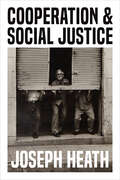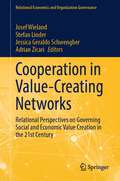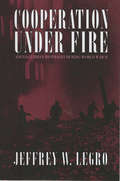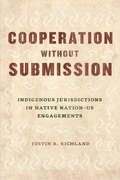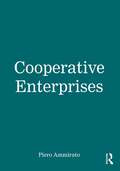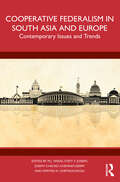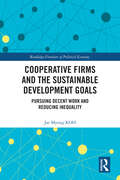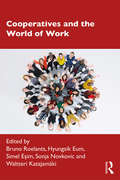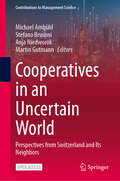- Table View
- List View
Conversations with Elie Wiesel
by Elie Wiesel Richard D. HeffnerHeffner (communications and public policy, Rutgers U. ) conducted some two dozen interviews with Elie Wiesel for his public television productions "The Open Mind" and "Dialogues: A Series of Conversations on the Crucial Issues of Our Times. " These, in addition to a few conducted solely for this volume, were distilled to form the 11 chapters of this book, in which Nobel Peace Prize-winner Wiesel reflects on the moral responsibility of governments and individuals; the role of the state in our lives; the rise of nationalism; religion, politics, and tolerance; capital punishment; mercy killing; and the role of memory. Annotation c. Book News, Inc. , Portland, OR (booknews. com)
Conversations with RBG: Ruth Bader Ginsburg on Life, Love, Liberty, and Law
by Jeffrey RosenIn her own words, Ruth Bader Ginsburg offers an intimate look at her life and career, through an extraordinary series of conversations with the head of the National Constitution Center.This remarkable book presents a unique portrait of Justice Ruth Bader Ginsburg, drawing on more than twenty years of conversations with Jeffrey Rosen, starting in the 1990s and continuing through the Trump era. Rosen, a veteran legal journalist, scholar, and president of the National Constitution Center, shares with us the justice’s observations on a variety of topics, and her intellect, compassion, sense of humor, and humanity shine through. The affection they have for each other as friends is apparent in their banter and in their shared love for the Constitution—and for opera.In Conversations with RBG, Justice Ginsburg discusses the future of Roe v. Wade, her favorite dissents, the cases she would most like to see overruled, the #MeToo movement, how to be a good listener, how to lead a productive and compassionate life, and of course the future of the Supreme Court itself. These frank exchanges illuminate the steely determination, self-mastery, and wit that have inspired Americans of all ages to embrace the woman known to all as “Notorious RBG.”Whatever the topic, Justice Ginsburg always has something interesting—and often surprising—to say. And while few of us will ever have the opportunity to chat with her face-to-face, Jeffrey Rosen brings us by her side as never before. Conversations with RBG is a deeply felt portrait of an American hero.
Convicting Avery: The Bizarre Laws and Broken System behind "Making a Murderer"
by Michael D. CicchiniThe shocking Netflix documentary Making a Murderer left millions of viewers wondering how an apparently innocent man could be wrongfully convicted - not just once, but twice. This book explains, in plain English, the numerous flaws in Wisconsin's criminal justice system that led to the wrongful convictions of Steven Avery and his mentally challenged nephew Brendan Dassey. Equally disturbing, it also reveals that similar flaws exist in other jurisdictions of the country.The author, himself a criminal defense attorney in Wisconsin, details the egregious procedures that resulted in the Avery and Dassey convictions. Besides the use by law enforcement of suggestive eyewitness-identification methods and interrogation tactics known to produce false confessions, defense lawyers had their hands tied by a truth-suppressing trial rule. Though they had evidence that someone other than Avery murdered Teresa Halbach, Wisconsin courts rarely permit consideration of such evidence. Perhaps most troubling, the burden of proof in this state is actually much lower than the constitutionally-mandated "beyond a reasonable doubt" standard. The author not only discusses the documentary, but he also quotes from and cites Avery's and Dassey's appellate court decisions, appellate court briefs, numerous trial court documents, other cases, law review articles, and scientific studies. This unsettling book will give you facts and insights beyond those presented in the documentary and leave you wondering whether the constitutional right to a fair trial is actually guaranteed where you live.From the Trade Paperback edition.
Convicting the Innocent: Death Row and the Ineqaulity of Justice
by Stanley Cohen“A landmark in the fight against the death penalty. Extensively researched and brilliantly written” (Martin Garbus, criminal defense attorney). This investigation into wrongful convictions illustrates the tragic consequences that ensue when the American legal system goes awry. Whether it’s by eyewitness error, jailhouse snitch testimony, corrupt law enforcement, racism, junk science, tainted jury deliberation, prosecutorial misconduct, or incompetent counsel, gross malfeasance is all too possible, and not uncommon. Yet, while many innocent people are put on death row, there’s still an opportunity for justice. Award-winning journalist Stanley Cohen chronicles more than forty cases of men across the country who were arrested, convicted, sentenced, degraded by prison life, dragged through the appeals system, and finally set free because of evidence proving their innocence. These stories end with vindication, but in a country that has performed nearly a thousand executions since 1976, how many more inmates are suffering injustice at the hands of the justice system? The solution to America’s tarnished legal system may be elusive, but the questions raised in this “valuable accounting of a hidden societal plague” cannot be ignored (Kirkus Reviews).
Convicting the Innocent: Where Criminal Prosecutions Go Wrong
by Garrett Brandon L.On January 20, 1984, Earl Washington-defended for all of forty minutes by a lawyer who had never tried a death penalty case-was found guilty of rape and murder in the state of Virginia and sentenced to death. After nine years on death row, DNA testing cast doubt on his conviction and saved his life. However, he spent another eight years in prison before more sophisticated DNA technology proved his innocence and convicted the guilty man. DNA exonerations have shattered confidence in the criminal justice system by exposing how often we have convicted the innocent and let the guilty walk free. In this unsettling in-depth analysis, Brandon Garrett examines what went wrong in the cases of the first 250 wrongfully convicted people to be exonerated by DNA testing. Based on trial transcripts, Garrett's investigation into the causes of wrongful convictions reveals larger patterns of incompetence, abuse, and error. Evidence corrupted by suggestive eyewitness procedures, coercive interrogations, unsound and unreliable forensics, shoddy investigative practices, cognitive bias, and poor lawyering illustrates the weaknesses built into our current criminal justice system. Garrett proposes practical reforms that rely more on documented, recorded, and audited evidence, and less on fallible human memory. Very few crimes committed in the United States involve biological evidence that can be tested using DNA. How many unjust convictions are there that we will never discover? "Convicting the Innocent" makes a powerful case for systemic reforms to improve the accuracy of all criminal cases.
Conviction: The new pulse-racing thriller from the author of DO NO HARM
by Jack Jordan'If you like a legal thriller you'll love this!' HARRIET TYCE TO STEAL A MAN'S FREEDOM ALL IT TAKES IS . . . CONVICTION Wade Darling stands accused of killing his wife and teenage children as they slept before burning the family home to the ground. When the case lands on barrister Neve Harper&’s desk, she knows it could be the career making case she&’s been waiting for. But only if she can prove Wade&’s innocence. A matter of days before the case, as Neve is travelling home for the night, she is approached by a man. He tells her she must lose this case or the secret about her own husband&’s disappearance will be revealed. Failing that, he will kill everyone she cares about until she follows orders. Neve must make a choice – betray every principle she has ever had by putting a potentially innocent man in prison, or risk putting those she loves in mortal danger.For fans of Steve Cavanagh, Linwood Barclay and Gillian McAllister, introducing the latest novel from the master of the moral dilemma, Jack Jordan.PRAISE FOR JACK JORDAN: 'When you pick up a book to read the first page and then can&’t put it down . . . ' SARAH PEARSE 'Thriller fans will be in heaven' LOUISE CANDLISH 'What a terrifying ride!' GILLY MACMILLAN
Convictions Without Truth: The Incompatibility of Science and Law (Routledge Frontiers of Criminal Justice)
by Robert SchehrConvictions Without Truth sets out to determine whether and to what extent science and law may coexist in an institutional relationship that truthfully generates individualization through application of forensic testimony for charges relating to violations of criminal law. In the first two chapters, readers are exposed to contemporary unscientific forensic practices as juxtaposed to the evidentiary standard announced by the United States Supreme Court in Daubert v. Merrill Dow Pharmaceuticals, as well as scientific requirements for validity and reliability of expert witness testimony. The remaining chapters provide an explanation for retention of existing, though faulty, forensic practices by way of analysis of path dependency, the fixation of belief, and neuro and cognitive psychology. Through immanent critique and unmasking, the book deconstructs prevailing forensic practices through application of existing published documentation. The final chapter addresses the fixation of belief from the perspective of neuropsychology and cognitive psychology. Readers will gain an understanding of the current concerns relating to application of contemporary forensic practices ; current case law and federal rules guiding the introduction of expert witness testimony; and why it is that despite widely recognized concerns raised from within and outside of the criminal legal system, application of unscientific forensic practices continues., The book also shows how the criminal legal system is experiencing a paradigm shift due to dialectical juxtaposition of existing unscientific forensic practices with contemporary science. Readers are shown that because of its continued reliance upon unscientific forensic practices, the criminal legal system reveals its hegemonic commitment to social control through its willingness to accept "satisfying" as opposed to "truthful" results that generate wrongful convictions. Convictions Without Truth will be of particular interest to students, academics, and practitioners working within the criminal legal field. It will also appeal to those wanting to know more about forensics and criminal law.
Convictions: A Prosecutor's Battles Against Mafia Killers, Drug Kingpins, and Enron Thieves
by John KrogerConvictions is a spellbinding story from the front lines of the fight against crime. Most Americans know little about the work of assistant United States attorneys, the federal prosecutors who possess sweeping authority to investigate and prosecute the nation's most dangerous criminals. John Kroger pursued high-profile cases against Mafia killers, drug kingpins, and Enron executives. Starting from his time as a green recruit and ending at the peak of his career, he steers us through the complexities of life as a prosecutor, where the battle in the courtroom is only the culmination of long and intricate investigative work. He reveals how to flip a perp, how to conduct a cross, how to work an informant, how to placate a hostile judge. Kroger relates it all with a novelist's eye for detail and a powerful sense of the ethical conflicts he faces. Often dissatisfied with the system, he explains why our law enforcement policies frequently fail in critical areas like drug enforcement and white-collar crime. He proposes new ways in which we can fight crime more effectively, empowering citizens to pressure their lawmakers to adopt more productive policies. This is an unflinching portrait of a crucial but little-understood part of our justice system, and Kroger is an eloquent guide.
Convictions: An Absolutely Gripping Suspense Drama (The Natalie Bach Novels #1)
by Caro LandA stunning new drama from Caroline England, writing as Caro Land. There are two sides to every crime… Returning home to care for her ill mother, and approaching her fortieth birthday, Natalie Bach is devastated when she’s dumped without explanation by her long-term boyfriend. Struggling to pick herself up, she’s offered her old job at Goldman Law. Jack Goldman’s estranged son Julian has been arrested for attempted murder and he wants Natalie to find out why. With the help of fellow solicitor Gavin Savage, Natalie sets out to investigate, but with a series of red herrings ahead, will she ever discover the truth? And can Natalie avoid her personal problems interfering with the case? What everyone is saying about Convictions: "A brilliant read with surprising twists and great characters" "more twists and turns than you could count." - Ginger Book Geek "this book had everything; a peek into the legal world, great characterisation, compelling darkness complemented with a lightness of humour as well as a satisfying ending" “A brilliantly crafted novel. I was totally engrossed in the characters and plot from start to finish. I couldn’t put it down.” - Amanda Robson, Sunday Times bestselling author of Obsession, Guilt and Envy Convictions is the first book in a gripping new legal, crime suspense series written by bestselling author Caroline England, writing as Caro Land. It will appeal to fans of authors like Diane Jeffrey, Samantha Hayes and K.L. Slater as well as readers of women's fiction.
Cookie's Case
by Andy SiegelTug Wyler is embroiled in the mysterious medical malady of a sexy stripper who slipped on a banana peel during her signature act Cookie, an angel in stiletto heels, is by far the most popular performer at Jingles Dance Bonanza. To her devoted audience, she's a friend, therapist, and shoulder to cry on, all rolled into one. While meeting an old pal at the club, Tug doesn't expect to pick up a new client but quickly realizes the gallant Cookie--dancing in a neck brace, each leg kick potentially her last--is in need of a committed champion. Righting wrongs is never a simple task for Tug, a sharp-witted and unorthodox trial lawyer who repeatedly finds himself in the middle of unusual cases and causes. But that doesn't stop him from trying. Believing that Cookie is the victim of a spine surgeon with a sloppy touch, Tug takes her case. But as he seeks both medical remedy and a fair shake for Cookie, he realizes--a tad too late--that sinister sights are now trained on him. In Cookie's Case, this offbeat attorney will go farther for justice than he ever has before.
Cool War
by Noah FeldmanA bold and thought-provoking look at the future of U.S.-China relations, and how their coming power struggle will reshape the competitive playing field for nations around the world The Cold War seemingly ended in a decisive victory for the West. But now, Noah Feldman argues, we are entering an era of renewed global struggle: the era of Cool War. Just as the Cold War matched the planet's reigning superpowers in a contest for geopolitical supremacy, so this new age will pit the United States against a rising China in a contest for dominance, alliances, and resources. Already visible in Asia, the conflict will extend to the Middle East (U.S.-backed Israel versus Chinese-backed Iran), Africa, and beyond. Yet this Cool War differs fundamentally from the zero-sum showdowns of the past: The world's major power and its leading challenger are economically interdependent to an unprecedented degree. Exports to the U.S. account for nearly a quarter of Chinese trade, while the Chinese government holds 8 percent of America's outstanding debt. This positive-sum interdependence has profound implications for nations, corporations, and international institutions. It makes what looked to be a classic contest between two great powers into something much more complex, contradictory, and badly in need of the shrewd and carefully reasoned analysis that Feldman provides. To understand the looming competition with China, we must understand the incentives that drive Chinese policy. Feldman offers an arresting take on that country's secretive hierarchy, proposing that the hereditary "princelings" who reap the benefits of the complicated Chinese political system are actually in partnership with the meritocrats who keep the system full of fresh talent and the reformers who are trying to root out corruption and foster government accountability. He provides a clear-eyed analysis of the years ahead, showing how China's rise presents opportunities as well as risks. Robust competition could make the U.S. leaner, smarter, and more pragmatic, and could drive China to greater respect for human rights. Alternatively, disputes over trade, territory, or human rights could jeopardize the global economic equilibrium--or provoke a catastrophic "hot war" that neither country wants. The U.S. and China may be divided by political culture and belief, but they are also bound together by mutual self-interest. Cool War makes the case for competitive cooperation as the only way forward that can preserve the peace and make winners out of both sides.Advance praise for Cool War "We are leaving the era of 'Chimerica'--when China and America were economically joined at the hip--and entering the era of what Noah Feldman has justly and wittily dubbed 'Cool War.' Feldman anatomizes the rapid transformation of the Sino-American relationship from an unequal trading partnership into a new and heavily armed ambivalence. Just how cool the conflict stays, Feldman suggests, will be determined not in cyberspace or at sea but in international institutions. Cool War is essential reading for any serious student of the emergent bipolar order in the Asia-Pacific region."--Niall Ferguson, New York Times bestselling author of Colossus: The Rise and Fall of the American Empire and Civilization: The West and the Rest "By giving realism and liberal internationalism their due, and by giving credence to both naked self-interest and legal norms, Noah Feldman's dissection of the United States-China relationship is smart, balanced, and wise."--Robert D. Kaplan, New York Times bestselling author of The Revenge of Geography
Cooperating for Peace and Security: Evolving Institutions and Arrangements in a Context of Changing U. S. Security Policy
by Bruce D. Jones Shepard Forman Richard GowanCooperating for Peace and Security is a comprehensive survey of multilateral security cooperation since 1989. With essays by leading experts on topics from peacekeeping to nuclear security, it goes beyond theoretical discussions of the value of cooperation to show how the operational activities of international organizations meet the security needs of states. In particular, it explores the complex relationship between multilateralism and American security concerns. Covering the UN, NATO, and regional organizations, the authors show that U.S. interests have often shaped institutions. But, more strikingly, other states have also driven institutional change without U.S. support or even in the face of American opposition. This raises important questions about how the balance of power shapes international institutions. In a period of shifting power dynamics, the empirical evidence on security cooperation gathered in this volume is a unique resource for scholars and policy-makers concerned with the future of international institutions.
Cooperation and Protracted Conflict in International Affairs: Cycles of Reciprocity
by Anat Niv-SolomonThis book addresses two main questions: under what conditions does reciprocity fail to produce cooperation?; and when do reciprocal dynamics lead to negative, instead of positive, cycles? Answering these questions is important for both scholars and practitioners of international negotiations and politics. The main argument of this project is that positive tit-for-tat (TFT) and negative reciprocal cycles are two possible outcomes originating from the same basic process of reciprocity. It is important to acknowledge both possibilities and understand when a situation is going to develop into one or the other outcome. The study then calls for a broader discussion of reciprocity in international relations (IR). Specifically, IR should include the negative and more problematic side of reciprocity. To exemplify this, the book provides a detailed analysis of two case studies: border and maritime disputes between China and Vietnam; and Mexico and Guatemala.
Cooperation and Social Justice
by Joseph HeathIn six new essays, philosopher and award-winning author Joseph Heath explores the connection between principles of justice and the institutional arrangements required to achieve them. Topics include the significance of status inequality, the question of open borders and immigration, the stigmatization of self-control failure, and debates over racial inequality in the United States. Ultimately, Cooperation and Social Justice reveals that one cannot think about questions of social justice without also taking seriously the institutional arrangements through which they may or may not be realized.
Cooperation in Value-Creating Networks: Relational Perspectives on Governing Social and Economic Value Creation in the 21st Century (Relational Economics and Organization Governance)
by Josef Wieland Stefan Linder Adrian Zicari Jessica Geraldo SchwengberThis volume embarks on a research journey that focuses on the processes of economic and social value creation in the 21st century. Given that value creation is increasingly organized in networks consisting of businesses, governments, academia, civil society, and other societal stakeholders, the contributions address various aspects of and challenges in governing cooperation in value-creating networks. Exploring topics such as relational rationality, cultural complexity, shared value creation, and relational contracts, this book reveals the mechanisms and processes involved in governing the complexities of inter-sectoral relationships in a networked society. Given its scope and focus, this book will appeal to scholars of economics, economic sociology, organizational studies, and related fields.
Cooperation in the Law of Transboundary Water Resources
by Christina LebClimate change, population growth and the increasing demand for water are all capable of leading to disputes over transboundary water systems. Dealing with these challenges will require the enhancing of adaptive capacity, the improving of the quality of water-resources management and a reduction in the risk of conflict between riparian states. Such changes can only be brought about through significant international cooperation. Christina Leb's analysis of the duty to cooperate and the related rights and obligations highlights the interlinkages between this duty and the principles of equitable and reasonable utilisation and the prevention of transboundary harm. In doing so, she considers the law applicable to both international watercourses and transboundary aquifers, and explores the complementarities and interaction between the rules of international water law and the related obligations of climate change and human rights law.
Cooperation under Fire: Anglo-German Restraint during World War II (Cornell Studies in Security Affairs)
by Jeffrey W. LegroWhy do nations cooperate even as they try to destroy each other? Jeffrey Legro explores this question in the context of World War II, the "total" war that in fact wasn't. During the war, combatant states attempted to sustain agreements limiting the use of three forms of combat considered barbarous—submarine attacks against civilian ships, strategic bombing of civilian targets, and chemical warfare. Looking at how these restraints worked or failed to work between such fierce enemies as Hitler's Third Reich and Churchill's Britain, Legro offers a new understanding of the dynamics of World War II and the sources of international cooperation.While traditional explanations of cooperation focus on the relations between actors, Cooperation under Fire examines what warring nations seek and why they seek it—the "preference formation" that undergirds international interaction. Scholars and statesmen debate whether it is the balance of power or the influence of international norms that most directly shapes foreign policy goals. Critically assessing both explanations, Legro argues that it was, rather, the organizational cultures of military bureaucracies—their beliefs and customs in waging war—that decided national priorities for limiting the use of force in World War II.Drawing on documents from Germany, Britain, the United States, and the former Soviet Union, Legro provides a compelling account of how military cultures molded state preferences and affected the success of cooperation. In its clear and cogent analysis, this book has significant implications for the theory and practice of international relations.
Cooperation without Submission: Indigenous Jurisdictions in Native Nation–US Engagements (Chicago Series in Law and Society)
by Justin B. RichlandA meticulous and thought-provoking look at how Tribes use language to engage in "cooperation without submission." It is well-known that there is a complicated relationship between Native American Tribes and the US government. Relations between Tribes and the federal government are dominated by the principle that the government is supposed to engage in meaningful consultations with the tribes about issues that affect them. In Cooperation without Submission, Justin B. Richland, an associate justice of the Hopi Appellate Court and ethnographer, closely examines the language employed by both Tribes and government agencies in over eighty hours of meetings between the two. Richland shows how Tribes conduct these meetings using language that demonstrates their commitment to nation-to-nation interdependency, while federal agents appear to approach these consultations with the assumption that federal law is supreme and ultimately authoritative. In other words, Native American Tribes see themselves as nations with some degree of independence, entitled to recognition of their sovereignty over Tribal lands, while the federal government acts to limit that authority. In this vital book, Richland sheds light on the ways the Tribes use their language to engage in “cooperation without submission.”
Cooperation without Submission: Indigenous Jurisdictions in Native Nation–US Engagements (Chicago Series in Law and Society)
by Justin B. RichlandA meticulous and thought-provoking look at how Tribes use language to engage in "cooperation without submission." It is well-known that there is a complicated relationship between Native American Tribes and the US government. Relations between Tribes and the federal government are dominated by the principle that the government is supposed to engage in meaningful consultations with the tribes about issues that affect them. In Cooperation without Submission, Justin B. Richland, an associate justice of the Hopi Appellate Court and ethnographer, closely examines the language employed by both Tribes and government agencies in over eighty hours of meetings between the two. Richland shows how Tribes conduct these meetings using language that demonstrates their commitment to nation-to-nation interdependency, while federal agents appear to approach these consultations with the assumption that federal law is supreme and ultimately authoritative. In other words, Native American Tribes see themselves as nations with some degree of independence, entitled to recognition of their sovereignty over Tribal lands, while the federal government acts to limit that authority. In this vital book, Richland sheds light on the ways the Tribes use their language to engage in “cooperation without submission.”
Cooperation without Submission: Indigenous Jurisdictions in Native Nation–US Engagements (Chicago Series in Law and Society)
by Justin B. RichlandA meticulous and thought-provoking look at how Tribes use language to engage in "cooperation without submission." It is well-known that there is a complicated relationship between Native American Tribes and the US government. Relations between Tribes and the federal government are dominated by the principle that the government is supposed to engage in meaningful consultations with the tribes about issues that affect them. In Cooperation without Submission, Justin B. Richland, an associate justice of the Hopi Appellate Court and ethnographer, closely examines the language employed by both Tribes and government agencies in over eighty hours of meetings between the two. Richland shows how Tribes conduct these meetings using language that demonstrates their commitment to nation-to-nation interdependency, while federal agents appear to approach these consultations with the assumption that federal law is supreme and ultimately authoritative. In other words, Native American Tribes see themselves as nations with some degree of independence, entitled to recognition of their sovereignty over Tribal lands, while the federal government acts to limit that authority. In this vital book, Richland sheds light on the ways the Tribes use their language to engage in “cooperation without submission.”
Cooperative Enterprises: Innovation, Resilience And Social Responsibility (Routledge Studies In Social Enterprise And Social Innovation Ser.)
by Piero AmmiratoCooperative Enterprises is the first textbook to examine the evolution of the cooperative enterprise model and the contribution that cooperatives can make to the economy and society.It provides an accessible overview of the subject, looking at history, cooperative models, theories, legislation, and governance. Cooperative Enterprises takes an international approach throughout, drawing on examples from cooperatives from across the globe. The book offers a valuable historical perspective, placing cooperatives within their political, social, cultural, and economic contexts since the Industrial Revolution. It analyses and compares the cooperative law of 26 jurisdictions and showcases key defining moments for cooperative enterprises, cooperative development models, cooperative‑specific good practice standards, and compares the cooperative model with the private enterprise model, giving readers a comprehensive view of the subject. The book also demonstrates that cooperatives correct the market, complement the role of the state, support local economic development, reduce income and wealth inequalities, promote social cohesion, and promote economic democracy. Students are supported with a range of pedagogical features, including case studies, tables, figures, chapter summaries, and discussion questions to encourage critical thinking.This is the ideal textbook for undergraduate and postgraduate courses on cooperative studies, and will also be an illuminating resource for students, researchers, and policymakers interested in social enterprise, business history, economic history, corporate governance, economic democracy, and community development.
Cooperative Federalism in South Asia and Europe: Contemporary Issues and Trends
by Dimitris N. Chryssochoou M. J. Vinod Stefy V. Joseph Joseph Chacko ChennatuserryThis book explores the challenges, opportunities, and trends impacting the working of federations in South Asia and Europe. It deliberates on the changing socio-economic realities, challenges facing the existing structures of governance, degrees of consociationalism, and the growing aspirations of people in South Asia and Europe. Through case studies from Greece, Germany, Austria, Switzerland, Spain, France, Sri Lanka, Pakistan, Nepal, Maldives, Bhutan, and India, the volume focuses on critical issues relating to cooperative federalism – its complexities, institutional dilemmas, and trends in South Asia and Europe. It discusses a variety of themes relevant to Cooperative Federalism including federal-state relations; cooperative governance; constitution; multiculturalism, fiscal relations, democratization, devolution of powers, consociationalism, and global citizenship in South Asia and Europe. The book further emphasizes the need to strike a balance between the federal government and the constituent units in these two regions. Topical and lucid, this book will be of interest to teachers, scholars, and researchers of political science, comparative government and politics, federalism, South Asian politics, European politics, governance studies, and political studies.
Cooperative Firms and the Sustainable Development Goals: Pursuing Decent Work and Reducing Inequality (Routledge Frontiers of Political Economy)
by Jae Myong KOHWith growing economic inequality and threats to the sustainability of human societies, Koh argues that cooperatives can play an important role in promoting decent work and reducing economic inequality in the twenty-first century and thus urges policy makers to reignite policy discussions on cooperatives. This book shows how worker cooperatives are uniquely situated to empower low- and middle-wage workers and what governments can do to promote them. Koh clarifies the mechanism by which cooperatives create an upper hand over conventional companies in ‘labor-intensive’ sectors, thereby boosting employment potential. He also explains cooperatives’ wide contribution to the Sustainable Development Goals (SDGs), including the resilience of cooperatives in times of crises and their potential to address the challenges of aging societies. Furthermore, he provides a foundational work on ‘decentralized supporting mechanisms for cooperatives’ based on the analysis of the case of South Korea, where the number of cooperatives increased by 2,000 percent between 2013 and 2023. Lastly, he explains how to use Official Development Assistance (ODA) to support cooperatives in developing countries, especially Private Sector Instruments (PSIs), which were introduced in 2016 by the Development Assistance Committee of the Organization for Economic Cooperation and Development (OECD). This book will be of interest to researchers in the fields of cooperative management, development economics, and heterodox economics, as well as to policy makers and professionals.
Cooperatives and the World of Work
by Sonja Novkovic Bruno Roelants Hyungsik Eum Simel Esim Waltteri KatajamäkiAs the world of work and jobs is more uncertain than ever because of various trends impacting it, including the rise of robotics and the gig economy, Cooperatives and the World of Work furthers the debate on the future of work, sustainable development, and the social and solidarity economy of which cooperatives are a fundamental component. Throughout the book, the authors, who are experts in their respective fields, do not limit themselves to praising the advantages of the cooperative model. Rather, they challenge the narrow understanding of cooperatives as a mere business model and raise debate on the more fundamental role that cooperatives play in responding to social changes and in changing society itself. The book is unique in tracing the historical connection between cooperatives and the world of work since the end of the First World War and the recent shifts and restructuring in enterprise and the workplace. It presents a redefinition of the very concept of work, focusing on organizational innovation. This book is published in recognition of 100 years of the International Labour Organization, and gathers together research from leading experts who were brought together at an event co-hosted by the International Co-operative Alliance (ICA) and the International Labour Organization (ILO).
Cooperatives in an Uncertain World: Perspectives from Switzerland and Its Neighbors (Contributions to Management Science)
by Stefano Brusoni Martin Gutmann Michael Ambühl Anja NiedworokThis book focuses on different aspects of cooperatives in Switzerland and its neighboring countries, and their contribution to meeting overarching societal challenges. It seeks to identify how cooperatives can tackle grand societal challenges and extends the body of research on cooperatives. The discussions are highlighted in the context of the UN’s Sustainable Development Goals. The respective chapters cover topics such as cooperatives in Switzerland (historical roots, current landscape, embeddedness in profit/nonprofit organizations, participatory governance and legal aspects), grand societal challenges and cooperatives, and the future with and of cooperatives. This is an open access book.
